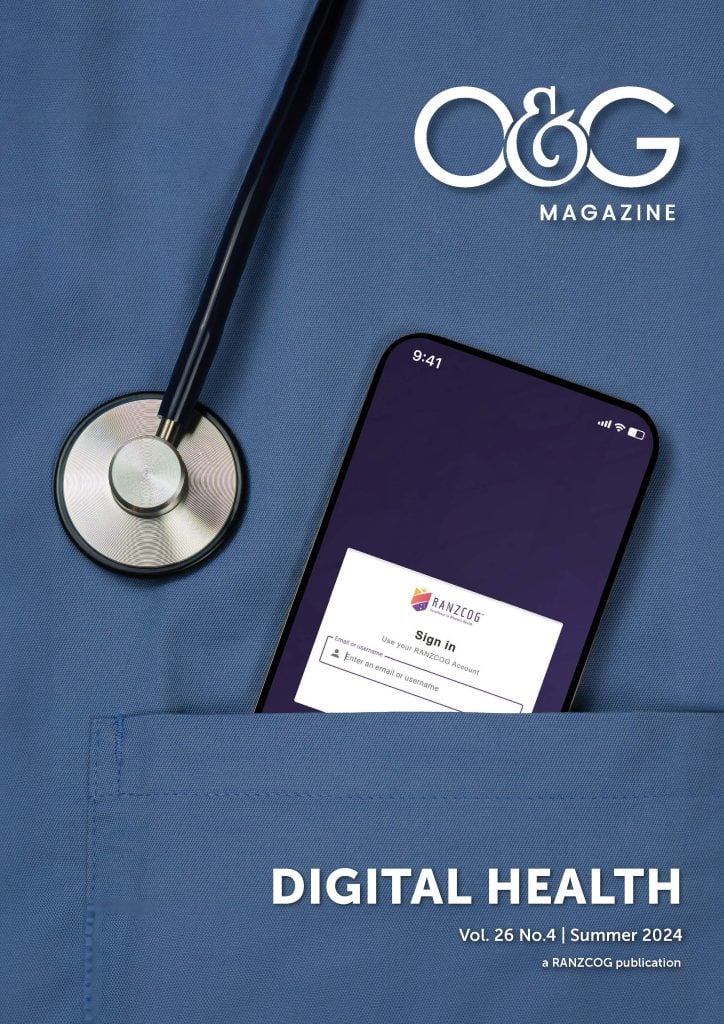Advocacy Updates from the President, Dr Gillian Gibson
Over the past three months, we’ve made significant strides in the College’s advocacy efforts. It has been an inspiring period of progress, and I’m pleased to share some of the key milestones and updates with you.
Private Practice Roundtable
On 14 November, the College’s Private Practice Committee convened the RANZCOG Preserving Women’s Choice and the Future of Private O&G Roundtable to address the growing challenges facing Australia’s private obstetrics and gynaecology sector.
Discussions at the roundtable highlighted several key themes and urgent reforms necessary to sustain private obstetrics and gynaecology services. Participants identified the ongoing need for a systematic review of the Medicare Benefits Schedule (MBS) to identify all instances of gender bias. All parties agreed with the general consensus that the risk equalisation regulations that govern private insurance need to be reviewed to allow for better inclusion of obstetrics and gynaecology. This likely includes opening up the relevant federal legislation, and as such will not lead to an immediate solution. Participants also identified the barrier to access of having pregnancy care restricted to ‘gold’ level private insurance plans. This is accompanied by a 12-month waiting period (a period that often doesn’t apply to other equivalent health needs). Participants stressed the need for steps to make these services more accessible across the product portfolio. Insurers did express openness to this change, whilst conveying the need to be supported by regulatory changes.
These themes and proposed reforms are detailed in RANZCOG’s Private Practice Roundtable report which can be reviewed on the College’s website.
Rural, Regional, and Remote Workforce
RANZCOG has made significant progress on two key initiatives which will help address ongoing healthcare inequities in rural, regional and remote communities. The College will launch its new FRANZCOG Rural O&G Specialist Advanced Training Pathway (FROGS) starting in 2025. This program is tailored to equip specialists with the unique skills needed for rural practice and will embed trainees in rural communities during their final training years to encourage retention. FROGS also offers government-funded financial grants to support childcare, housing, relocation assistance, and professional development, to foster connections and improve workforce retention.
Additionally, the Obstetrics and Gynaecology Education and Training (OGET) project has continued, holding more sessions across Australia. OGET brings specialist-led training to multidisciplinary teams across 33 peripheral sites and 8 hubs, ensuring the continued delivery of high-quality care in rural, regional and remote areas. RANZCOG calls for continued government funding to sustain these two critical initiatives which help address workforce challenges in O&G.
Specialist International Medical Graduates (SIMGs)
Furthering the College’s advocacy around workforce, together with the allied medical colleges of the Council of President’s Medical Colleges (CMPC), RANZCOG has called for an immediate pause on the Medical Board of Australia’s expedited pathways for Specialist International Medical Graduates (SIMG). The College argues that the current MBA proposal fails to address the complex workforce challenges facing obstetrics and gynaecology and may actually compound issues like resource imbalances and poor retention in underserved areas. Without a pause and redesign, the MBA’s one-size-fits-all approach will not meet the unique needs of obstetrics and gynaecology. RANZCOG has committed to creating a pathway with safeguards to support SIMG O&Gs assimilating into the workforce in Australia.
Abortion Care
Abortion has become increasingly politicised in Australia over the past six months, posing a significant risk to women’s reproductive freedoms. RANZCOG strongly opposed the Termination of Pregnancy (Live Births) Amendment Bill 2024 in Queensland, which did not progress out of the Committee. The College commended the Health, Environment and Agriculture Committee for recommending that the bill not proceed, recognising the risks of creating additional barriers to abortion access. RANZCOG provided evidence and testified at the public hearing of the Bill, highlighting that abortion is essential healthcare and legal restrictions would do nothing but harm reproductive rights. A similar bill in South Australia was defeated in a vote in the Legislative Council, with RANZCOG’s advocacy contributing to its rejection. The College will remain vigilant in its commitment to protecting access to abortion and upholding women’s reproductive rights across Australia and Aotearoa New Zealand.
Launch of the 2024-2027 Strategic Plan and Advocacy Priorities
Looking ahead, RANZCOG’s 2025-2027 Strategic Plan – launched in October – outlines the College’s key advocacy priorities. These priorities, listed below, will guide where we focus our efforts in the coming years:
- Advancing health outcomes for Aboriginal, Torres Strait Islander women, and wāhine Māori.
- Addressing gender bias in healthcare, research, and the regulatory environment.
- Enhancing access to obstetrics and gynaecology services, particularly in rural, regional, and remote areas.
- Preventing birth trauma.
- Ensuring sexual and reproductive health rights, including access to abortion.
- Expanding access to medicines and devices crucial for women’s health.
- Promoting the sustainability of both public and private obstetrics and gynaecology services.
- Tackling workforce challenges across Australia and Aotearoa New Zealand, including the availability of subspecialist care.
A Personal Thank You to Our Members
Our ongoing advocacy efforts would not be possible without the dedication and expertise of our members, trainees and consumers. Your contributions—whether through workshops, consultations, or participation in meetings—are integral to driving meaningful change in the healthcare system and improving health outcomes for women.
Sincerely,
Dr Gillian Gibson
President, RANZCOG





Leave a Reply